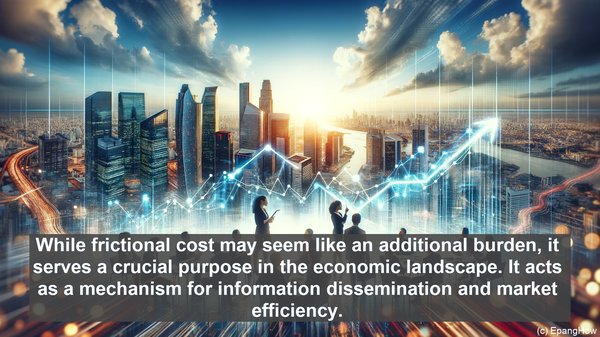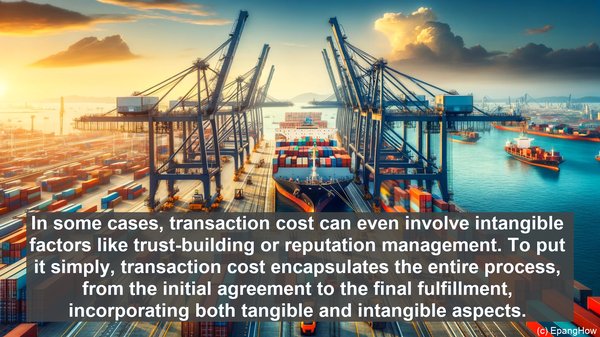Introduction: The Intricacies of Economic Costs
Greetings, fellow learners! Economics, as a discipline, encompasses a multitude of factors, one of which is cost. However, costs in the economic realm are not monolithic; they can be categorized into various types. Two such classifications are frictional cost and transaction cost. Although they may appear similar at first glance, they diverge in terms of their nature and implications. Let’s embark on this journey of understanding the distinction between frictional cost and transaction cost.

Defining Frictional Cost: The Cost of Searching
Frictional cost, in its essence, refers to the expenses incurred during the process of searching for an optimal economic choice. Imagine you’re looking for a new apartment. In this scenario, the frictional cost would encompass the time, effort, and resources you invest in exploring various options, contacting landlords, and visiting potential residences. It’s important to note that frictional cost is not limited to physical searching; it also encompasses the intangible aspects, such as researching online or seeking recommendations. In a broader economic context, frictional cost arises when individuals or entities engage in activities like job hunting, supplier scouting, or even market research.
Unraveling Transaction Cost: Beyond the Monetary Aspect
While frictional cost revolves around the search process, transaction cost takes a step further, encompassing the expenses incurred during the actual transaction or exchange. Monetary aspects, such as fees, commissions, or taxes, are often associated with transaction cost. However, it extends beyond the financial realm. Transaction cost also includes the non-monetary elements, such as the time and effort invested in negotiating, drafting contracts, or ensuring compliance. In some cases, transaction cost can even involve intangible factors like trust-building or reputation management. To put it simply, transaction cost encapsulates the entire process, from the initial agreement to the final fulfillment, incorporating both tangible and intangible aspects.
The Significance of Frictional Cost: A Necessary Component
While frictional cost may seem like an additional burden, it serves a crucial purpose in the economic landscape. It acts as a mechanism for information dissemination and market efficiency. When individuals or entities engage in the search process, they gather and evaluate information, compare alternatives, and make informed decisions. This not only ensures that the best possible choice is made but also fosters competition and innovation. Frictional cost, in a way, acts as a catalyst for market dynamics, driving progress and growth.
The Role of Transaction Cost: Beyond the Monetary Exchange
Transaction cost, too, plays a vital role in the economic ecosystem. By encompassing not just the financial aspects but also the non-monetary elements, it ensures the smooth functioning of transactions. The efforts put into negotiation, drafting contracts, or establishing trust are not mere formalities; they are integral to the transaction’s success and sustainability. In fact, transaction cost can often be seen as an investment, as it contributes to the establishment of long-term relationships and the avoidance of potential conflicts or disputes. Thus, transaction cost goes beyond the immediate exchange, shaping the future dynamics and interactions.

Comparing and Contrasting: Frictional Cost vs. Transaction Cost
While both frictional cost and transaction cost are components of the overall economic cost, they differ in terms of their timing and focus. Frictional cost is predominantly associated with the pre-transaction phase, encompassing the search and exploration. Transaction cost, on the other hand, is more concerned with the actual exchange, spanning from the initiation to the completion. Additionally, while frictional cost is often seen as a necessary component, facilitating market efficiency, transaction cost is more nuanced, with its implications varying based on the context. In some cases, high transaction cost can act as a deterrent, hindering economic activities, while in others, it can be seen as a safeguard, ensuring quality and reliability.
